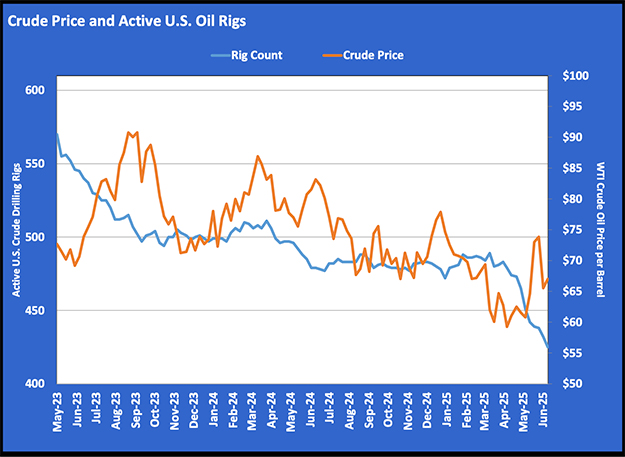Overcoming propane shortage: Q&A with Texas association head
Challenging. Untimely. Unprecedented.
There are a number of adjectives that can be used to describe the current propane shortage and its effects on U.S. consumers. But whatever your word of choice is, the fact remains that propane consumers are still in need of solutions – and sooner than later.
The propane industry is now turning to Texas as a state that can provide one possible solution to help overcome this shortage. LP Gas caught up with Bill Van Hoy, executive director of the Texas Propane Gas Association, to learn more about why marketers are turning to the Lone Star State for help. (Editor’s note: The state of Texas issued a 14-day proclamation Jan. 22 waiving Texas licensing, permitting and certification requirements regarding LP gas trucks and operators.)
LP Gas: We understand you’ve drafted a letter to Gov. Rick Perry, R-Texas, asking the state of Texas to take some action related to the shortage. What can you tell us about this letter and the request you’ve sent Gov. Perry?
Van Hoy: That happened on Friday. I think the declaration of emergency is sitting on the governor’s desk now. There’s a law in the Texas Natural Resources Code that requires the individuals who conduct commerce in the state of Texas to be licensed in the state of Texas, or work for a licensee here in Texas. We have a pretty robust requirement for individual drivers. They have to pass a test on all things related to LP gas. It’s really those two things that we are attempting to waive temporarily so additional transport trucks can come into the state.
LP Gas: How did the conversation that led to the drafting of this letter originate?
Van Hoy: There were a couple of phone calls conducted last week [with state association directors] concerning transportation and lack of supply. I think somebody on the call said, “Listen we’re limited on where we can go. We’ve pretty much expended all of our resources and we can’t go into Texas because of these rules.”
I think we’ve done this before – about five years ago, maybe. It was an issue on the Northeast coast. I know transports were going out of Texas, coming [to Texas] from as far as you could, from places like Maine. They were having propane pipeline problems.
I’m one who’s a staunch advocate of looking at the big picture on where [propane] supplies are going. We are having supply shortages where we shouldn’t have shortages.
LP Gas: How would you compare this propane shortage to ones the industry’s experienced in the past?
Van Hoy: This particular situation is unprecedented, I think. Crop drying came in early and heavy; we’ve had extremely cold weather, and the most obvious thing is this: Look at the simple number of starting inventories in the winter. If you’re far behind where you were, you weren’t where you historically started. Then you have to ask why that is. It’s because we’re moving an enormous amount of product out of the country.
All you have to do is look at the inflows and outflows of where propane is going. This is going to do nothing but hurt our businesses. There needs to be a minimum amount of storage for these very reasons. We’ve allowed our wholesale storage to adopt the principle that we’re going to be OK no matter what the situation is. We are exporting an enormous amount of what we historically could count on.
[People say] we don’t want government in our businesses. But it’s now become a situation where people feel different about it.
The pipelines and trucking are issues, but we’ve had those before. Even when you get to [terminals], they’re running out of inventories. If we have to import in the Northeast from another country, yet at the same time our creation of propane is 100 times greater than it has been in history, that’s a problem.
People are complacent until it is personal. You can try to be proactive and anticipate this type of situation. Status quo’s OK until a person is affected dramatically.
LP Gas: How do you anticipate rectifying this situation?
Van Hoy: We need to be involved in national energy policy. All critical commodities have policies in place. They don’t have open-ended export markets. Take a look at natural gas and exportation of our own oil. There are checks and balances there, not only for consumers in the United States, who need to be a priority – which currently we are not – but for oil it’s also a national security issue.
We need a national energy policy with very specific guidelines of what needs to occur, or this is going to happen again. I’m encouraged by the very recent activity and the sentiment that this needs to be done. I hope we don’t wind up a few weeks after this is all said and done at a complacent situation and to a place where we don’t want government in our business.
Whatever that policy would be, it would be to the betterment of the U.S. consumer.
Propane marketers, state execs mull effects of propane supply issues
Pictured above: Bill Van Hoy, center, at Propane Days last year in Washington, D.C. At right is Michael Tracey of Sea-3 Inc.
Photo: LP Gas
















